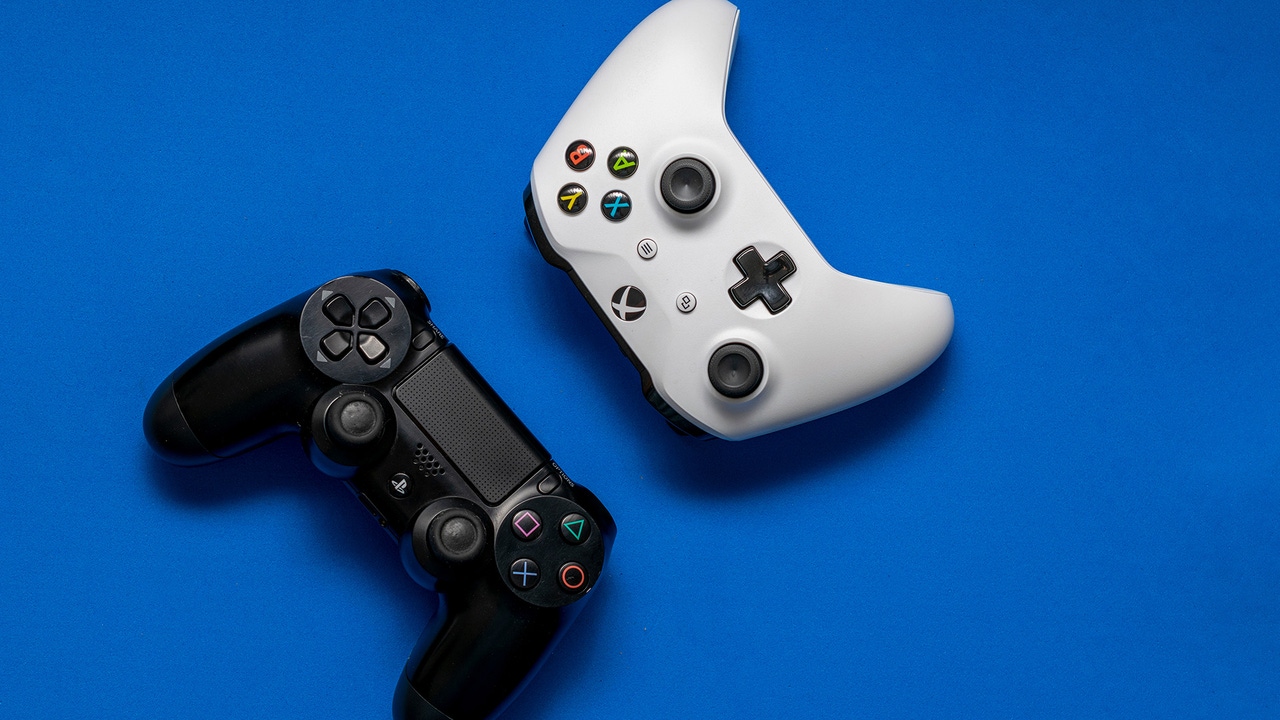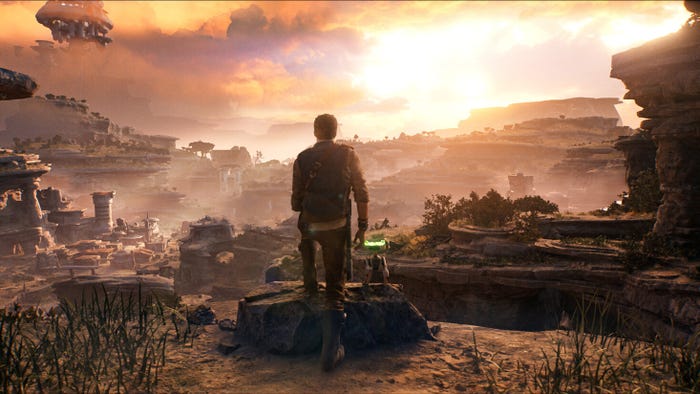Trending
Opinion: How will Project 2025 impact game developers?
The Heritage Foundation's manifesto for the possible next administration could do great harm to many, including large portions of the game development community.
You can't run from your past.

Well, this is weird. Try as they might, console makers and game developers can't escape the weight of the Xbox One and PlayStation 4.
I've been slow to make any judgment calls on this generation of game and console sales because, however you look at it, this was the weirdest generation shift in the game industry's history. It took place during the height of COVID-19 pandemic when more people spent time indoors, and amidst a technological shift that's made it possible to play triple-A games on portable devices like the Nintendo Switch and portable PC devices like the Steam Deck.
That's made direct comparisons with prior launches harder to make—but in the last week we got plenty of data to confirm an important fact: current-generation console sales are slowing down, and the last generation of consoles is partly to blame.
The three major data points are these: Xbox reported a massive dip in game hardware sales that may mean Xbox Series X|S sales have peaked. Sony revealed that PlayStation 5 sales are going strong, but they're on track to miss projected targets that could weigh on their hopes for overall sales this generation.
These facts feel deeply intertwined with why Electronic Arts announced that the last-gen port Star Wars Jedi: Survivor will arrive in September.
I’m delighted more people get to check out one of my favorite games from 2023. But this port undeniably shows how developers need the last generation of consoles to sell games.
Despite the success of Star Wars Jedi: Survivor EA decided a last-generation port of Jedi Survivor could juice the game’s revenue. It would take an impressive cost/benefit analysis to make that decision, because it’s not like there was a button somewhere in EA that just said “push button to port game.” It’s challenging work to take a game optimized for newer consoles and optimize it for older hardware.
EA was probably looking at data similar to what our colleagues at Omdia have been seeing. As you can see in the chart below, the active install base of Sony and Microsoft’s next-generation consoles only surpassed the previous generation in 2023—three years (really two and change, given how late the consoles launched in 2020) after their debut.

Image via Omdia.
That change has accelerated in 2024 but Omdia projects that in 2025, 25 percent of players will still be hanging out on older-generation consoles. Analyst James McWhirter pointed out to me that Sony reported in early 2023 that 30 percent of active PS5 users had never used a PS4, which is “good and bad” for the company.
“What we saw in the first half of the PS5's cycle was the adoption of PS5 outpaced the decline of active PS4 systems,” he said. “This tells us many PS5 purchasers never had a PS4. While positive in its own light it does shine a light on the prolonged cross-generation period we've seen continue into the second half of the cycle this year.”
In other words, some PlayStation 4 players were happy to stay on their last-generation console.
Why? It’s not clear. An obvious answer might be that Sony and Xbox were both slow to roll out games that made the most of their new hardware—but third-party games like Jedi Survivor could have convinced plenty of players to make the jump, and the excitement around new consoles seemed as strong as it was in prior years.
Other analysis indicates this slow adoption is due to games like Grand Theft Auto Online, Fortnite and Minecraft. Though both games have received graphical updates on PS5 and Xbox Series X|S, their prior-gen versions look and play just fine. Younger audiences accustomed to playing these games with their friends may not see the need to upgrade if their online social spaces aren't dramatically impacted.
That’s probably partly true, but surely the number of players on mobile devices eclipsed console users for the latter two titles, and younger users wouldn’t have the purchasing power to drive that shift anyway.
It’s likely a combination of these and other factors that all were exacerbated by events no one could control: the economy and inflation got weird right in the window these consoles were rolling out.
I say “weird” and not “bad” because, on paper, the post-COVID-19 recovery (at least in the United States) has been strong. There’s a reason people have been calling this a “vibecession.” Inflation, “greedflation,” and Russia’s invasion of Ukraine have all hit the market, but people still haven’t stopped spending money on entertainment.
Spending on travel, concerts, and Barbenheiemer exploded in the last two years, each driving knock-on economic stimulation for tourist attractions and areas around concert venues. Again, platforms like Ticketmaster drove prices upward to cash in on this interest—and are now reaping the rewards of allegedly gouging concertgoers for post-lockdown enthusiasm.
So if your household is shelling out hundreds for nosebleed tickets for Taylor Swift and buying custom Barbie outfits for repeat Barbenheimer outings, all while Kroger and other groceries twist your arm for basic groceries…upgrading your already-impressive game console may not look all that important.
I have no idea what the heck this slow adoption means for game developers.
For now it’s clear developers are planning to launch last-gen and current-gen versions of their games. Just this morning Future Friends announced that it’s porting Vampire Survivors onto PS4 and PS5. It’s a great title to span both generations. The already massively popular PC game doesn’t need fancy high-end graphics, so making a play for PlayStation is just all about making the game available for people anchored on that platform.

Image via Respawn Entertainment/Electronic Arts.
Some business brains in the industry are crossing their fingers for Grand Theft Auto VI to drag players forward, as the series is liable to drive millions of dollars in sales within 24 hours of launch.
And it’s not like the spending shifts in 2022 and 2023 permanently dragged consumers away from games. Musicians are suffering from a massive economic hangover, with globally-popular acts canceling shows as tickets fail to sell. Disney’s Deadpool and Wolverine shot some life into the box office, but it’s still a bad summer for AMC and Regal. The economy is slowing down a tad, but we’re not anywhere near something like the 2008 financial crisis. Every end of the entertainment business is looking left and right, trying to figure out what the hell is happening.
For now, the best we can do is keep in touch with players on last-generation devices. Players don’t care about the economic needs of any particular company. They want good games on the platforms they own.
Game Developer and Omdia are sibling organizations under Informa.
You May Also Like